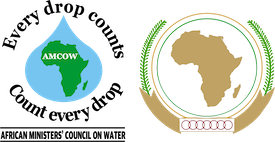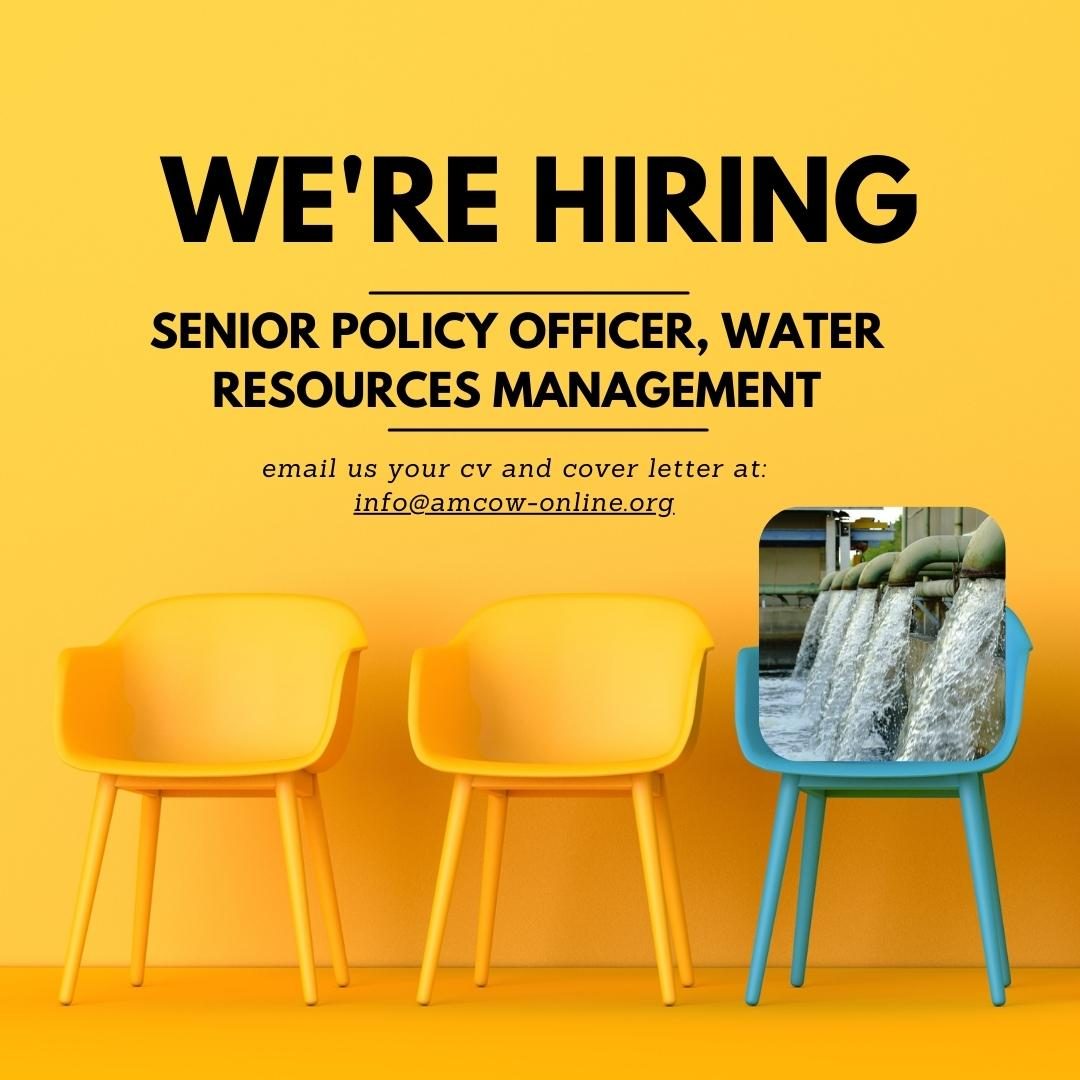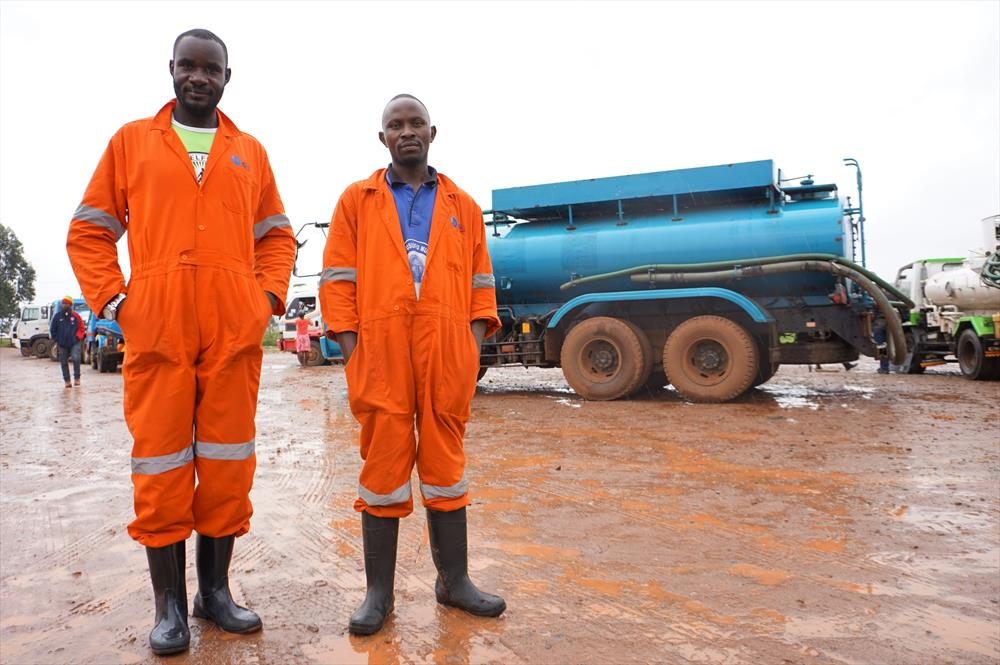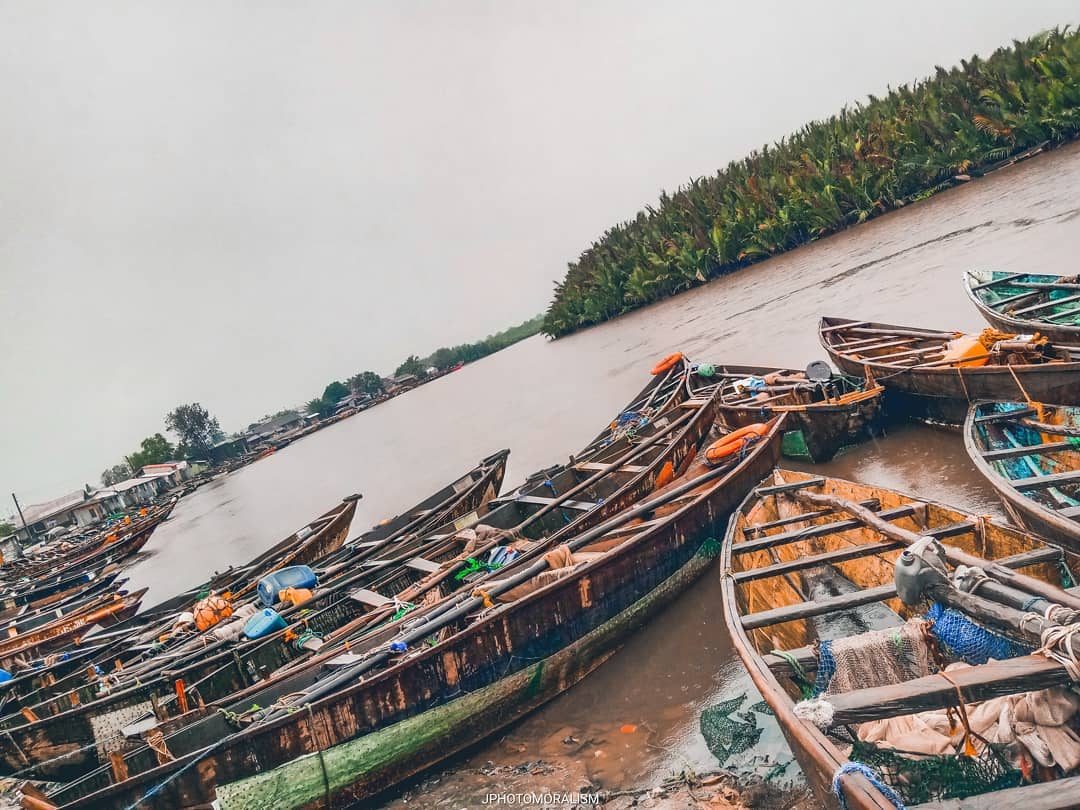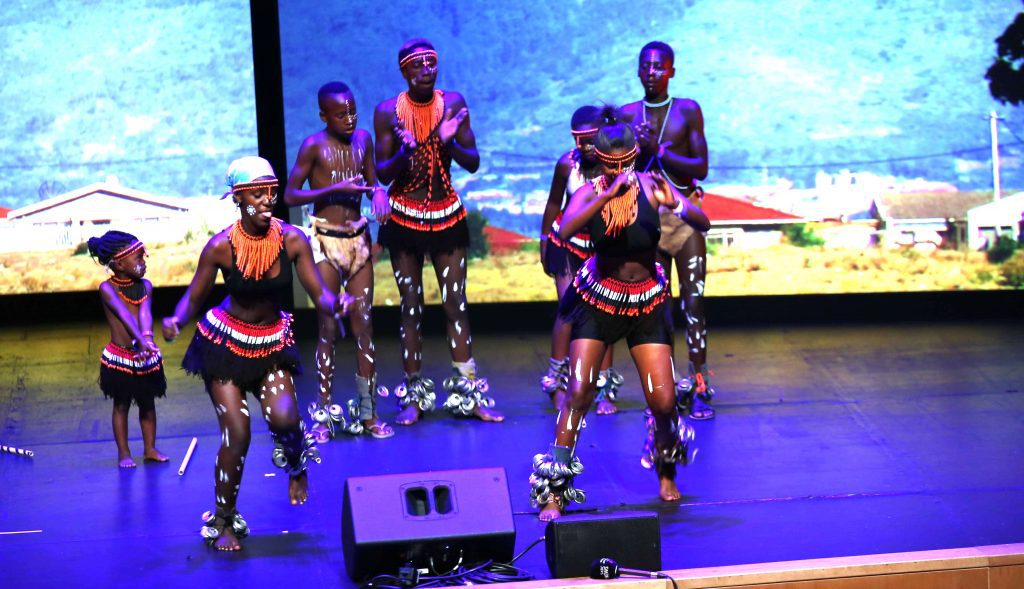Senior Monitoring, Evaluation and Results Officer (SME&R Officer)
Job Function: Reports to the Director of Programmes
Classification: Grade: Grade: P4 (out of a P1 – P5 professional grading structure)
Date Posted: 20 Oct. 2023
Background:
AMCOW is an intergovernmental, non-budgetary institution working under the Specialised Technical Committee on Agriculture, Rural Development, Water and Environment of the African Union (AU). AMCOW’s mission is to provide political leadership, policy direction and advocacy in the provision, use and management of water resources for sustainable social and economic development and maintenance of African ecosystems. For more information, refer to: http://www.amcow-online.org/.
The position of Senior Monitoring, Evaluation and Results Officer (SME&R Officer) is one of the key management functions under the Director of Programmes at the AMCOW Secretariat located in Abuja, Nigeria. The SME&R Officer will be the focal point person on all issues related to monitoring and evaluation of the AMCOW Work Programmes and project portfolio. The SME&R Officer provides technical guidance and advice to task teams on appropriate results management frameworks.
The scope of responsibilities of the role is described below.
Responsibilities:
Key responsibilities of SME&R Officer include overseeing the process of developing high-quality Water and Sanitation Sector Progress Reports and their submission at the African Union Commission (AUC) and development partners. The SME&R Officer will also lead the development and implementation of AMCOW’s monitoring and evaluation work. Further, the incumbent will lead the development of a result-based management system and support building capacity for implementation. Other responsibilities will include systematizing existing results frameworks for greater consistency. This will involve scaling up and refining AMCOW’s monitoring systems to generate rich analysis that track progress of annual plans and implementation of AMCOW’s strategy. The SME&R Officer will also support project managers to develop realistic plans, reviews, and evaluations. This will include developing progress reports for various stakeholders. The SME&R Officer will also coordinate independent evaluation of AMCOW work including operational plans. The SM&E Officer, under the guidance of the Senior Management Team, will coordinate all the teams in the development of the AMCOW Annual report and corporate reports. The detailed SME&R Officer’s primary scope of responsibilities consists of the following:
Results and Reporting:
- Lead and coordinate processes for the development and submission of high-quality annual reports of the Commission on the implementation of the July 2008 Assembly Declaration on the Sharm El Sheikh Commitments for Accelerating the Achievement of Water and Sanitation Goals in Africa.
- Coordinate donor-funded projects’ reporting processes, ensuring that all accountabilities and responsibilities are met, in line with AMCOW’s obligations. This also include monitoring all project activities, expenditures, and progress towards achieving the project output.
- Devise ways and strategies to support building capacity for water and sanitation reporting at Member State level.
- Promote alignment of Continental and Global Reporting processes
- Lead and conduct sector resource mapping and manage resource mapping database. This includes providing various sector resource/financing analysis.
- Design and operationalize a functional Monitoring, Evaluation, Learning and results system which aligns with the AMCOW strategy and accountability needs.
- Assist AMCOW’s Project development team in smartly integrating AMCOW monitoring, evaluation and learning systems into partnership agreements, with a view to effectively tracking progress, minimizing deviation from, and misalignment with AMCOW’s core mandate.
Frameworks:
- Lead the development and updating of AMCOW’s multi-year organizational results frameworks and strategic operational plans (SOPs).
- Coordinate the development of AMCOW’s annual organizational objectives, key performance indicators and targets that guide programmatic work.
- Support staff in developing programmatic and continental level results frameworks to measure progress against program and continental strategies – including work led in partnership with other organizations.
Systems and Analysis:
- Coordinate monitoring, evaluation, and results analysis across projects and programmes and ensure data standardization and quality.
- Facilitate and support capacity building activities towards water and sanitation sector system performance monitoring.
- Refine and improve AMCOW’s existing monitoring systems towards increased access and use by staff. This includes the automation and visualization of analysis, and integration of new data points, for individual and group learning as well as internal and external accountability.
- Commission and coordinate research and studies on key topics to help fill information gaps in the water and sanitation sector.
- Oversee the development of quarterly monitoring reports against organizational objectives; Lead analysis of progress against results, bi-annual analysis of research and data metrics.
Learning:
- Lead and facilitate reflection opportunities, including meetings and retreats, towards developing a strong organizational learning culture.
- Organize brown bag seminars with staff and, where relevant, externals.
- Draw lessons from analysis to deepen reflection to improve program design.
- Develop strategies for improving efficiency and effectiveness of projects by identifying bottlenecks.
- Contribute to processes of drafting learning papers to capture lessons from AMCOW’s work to inform policy in the water and sanitation sector in Africa.
- Input into the development of impactful case studies, to showcase insights and instances of success in AMCOW’s work.
- Lead initiatives and communities of practice that aim to share lessons, good practices and models in the water and sanitation sector in Africa.
Evaluation:
- Commission and oversee independent evaluation of AMCOW’s work.
- Work with the institutional leadership team to define focus and research questions that generate maximum learning and value to inform AMCOW’s strategies.
- Support AMCOW staff in designing and implementing program evaluations.
Management and Capacity:
- Manage consultants and or interns to undertake relevant analysis.
- Coordinate and facilitate technical working groups with development partners to harmonize efforts and improve the overall water and sanitation sector performance.
- Forge and consolidate working relationships with Universities and Academic Research Institutions to support filling information gaps at different levels. This includes streamlining work programme with the AUDA-NEPAD Centers of Excellence and capacity building networks and institutions.
- Work in close collaboration with team members to raise funding in support of AMCOW activities including monitoring and reporting.
- Perform other duties as required and assigned.
Experience and Requirements:
- At least a Master’s Degree in water or related disciplines including health, economics, statistics, social sciences, monitoring and evaluation, and international development.
- At least 10 years of direct relevant work experience in monitoring, evaluation and systems at senior level.
- Direct experience working with partners supporting monitoring, reporting as well as work programmes for the African Union Commission (AUC), AMCOW, AUDA-NEPAD, UN Agencies, and Development Partners.
- Experience in qualitative and quantitative operational research across countries, with substantive experience in preparing case studies.
- Experience in providing the following types of support: technical assistance, policy analysis, sector systems performance reviews, policy advocacy, and grant making; and targeting one or more of the following stakeholders: the AUC, governments, civil society, development partners towards improvements in governance policy and practice.
- Excellent diplomacy and relationship building skills, with an ability to prioritise, negotiate, and work with a variety of cross-cultural and high-profile technical experts and development partners.
- Experience in analyzing and presenting cross country data effectively, for a wide range of audiences, with attention to detail.
- Excellent oral and written communication skills.
- Ability to work well under pressure, to meet multiple deadlines in a fast-paced work environment.
- Multi-tasking skills, able to wear many hats in a fast-paced, challenging and rewarding environment.
- Strong facilitation and capacity building skills.
- Strong analytical skills and data/results visualization.
Technical Expertise:
Required Expertise:
Ability to effectively manage complex databases and systems. Interpret and implement different monitoring and results measurements strategies and also ensure a proper system is in place.
Language Requirements:
- Fluent and superior mastery of English and/or French through education and experience in a work context.
- Portuguese and/or Arabic languages would be an asset.
Skills:
- Strong proactive business development skills.Superior communication and presentation skills.
- Highly refined diplomacy and persuasive skills.Very good learning and knowledge sharing skills.
- Strong team building and motivating skills.
Computer Literacy:
- Expert-level use of the Office suite of applications (Word, Excel, PowerPoint).Familiarity with project management tools.
- Good knowledge and preferably work experience with Cloud-based technologies.
Age Requirement:
Candidate shall not be more than 55 years as at the publication of this job advert
Values:
- High professional ethics beyond legal compliance.
- Commitment to the public good.
- Commitment to quality and excellence, knowledge sharing and maintaining public trust.
- Accountability to AMCOW Secretariat, the AU member States and AMCOW Partners and Stakeholders.
- Transparency, honesty, and integrity including cross-cultural openness and flexibility.
Citizenship Requirement:
Citizen of any of the AU countries.
Submissions of Applications:
Interested candidates for this position should submit their formal application not later than 20th November 2023 at the address/email below.
The Executive Secretary,
African Ministers’ Council on Water (AMCOW), No. 11, T.Y. Danjuma Street, Asokoro District, Abuja, Nigeria.
Email: info@amcow-online.org;
Female candidates are encouraged to apply.
Please note that only shortlisted candidates will be contacted.
